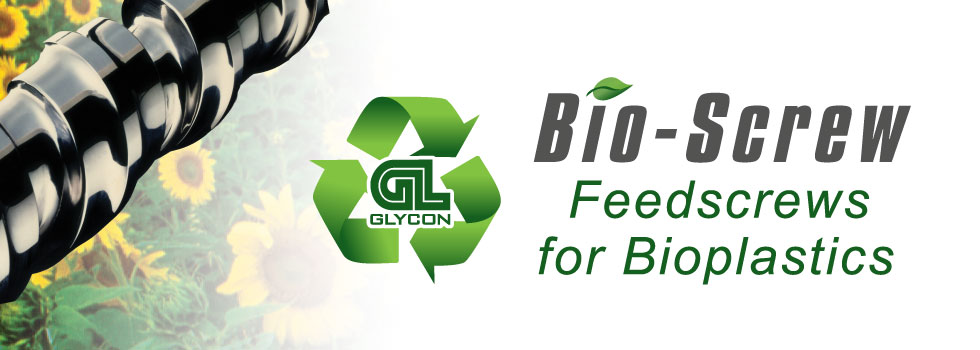Bio-Screw

GLYCON CORP. (founded in 1978 as Great Lakes Feedscrews) has been successfully designing and manufacturing feedscrews for plastics processing machinery for over 40 years.
With the rapid growth of the focus on the environment, BIOPLASTIC TECHNOLOGY has become a critical component of the future of the plastics industry. Glycon has recently re-configured their screw design laboratory, now designated as the “INNOVATION LAB", to facilitate testing of the processability and performance of new environmentally friendly polymers. The objective of the Innovation Lab is to run and compare different materials, i.e. Biobased vs. Petroleum based as well as Biodegradable, Recycled and Compostable materials. Lab technicians will choose from over 25 different screw configurations with the ability to modify and re-cut onsite to achieve optimum performance.
We are the “enabler"(!) Glycon’s BIO-Designs will provide the capability to utilize plastic materials that have a better fit in a Circular Economy. Glycon is partnering with industry leader DYNISCO in evaluating the processability of materials. Glycon will utilize the latest state-of- the-art Dynisco testing machinery, specifically designed for the thermoplastic industry. Dynisco’s VISCOINDICATOR provides continuous measurements of the melt flow rate, apparent viscocity or intrinsic viscosity directly on the extruder. Dynisco and Glycon look forward to working together with BIOBASED plastics manufacturers as well as processors utilizing bioplastic polymers in their products.
Glycon’s INNOVATION LAB will be available to schedule tests for processors and suppliers. Clients will be able to attend tests in person or participate via live streaming from the LAB. Complete data on the test along with a recommendation on screw design will be supplied.
The goal of the GLYCON/DYNISCO partnership is to generate accurate information that will result in machine optimization and provide sustainable solutions for plastics processors. Processors will be able to realize the environmental contributions of BIOPLASTICS while experiencing a smooth transition from many current materials that leave a greater carbon footprint. Our contribution will not only allow us to utilize renewable resources but, additionally, will permit reuse and recycling of materials that are now part of the post-consumer and post industrial waste problem. We are truly excited about working together with our environmentally conscious friends to place a greater emphasis on sustainability within the plastics industry!